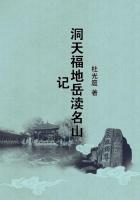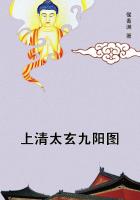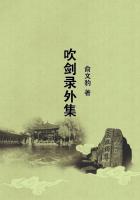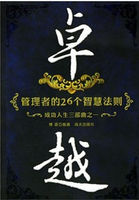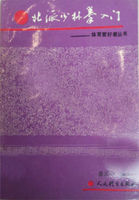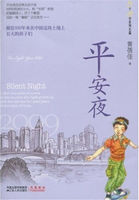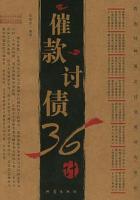But for most purposes it is best to regard the first difficulties of coping with nature as pretty well conquered before we begin to reckon the farmer's cultivation.Thus the returns that we count as due to the first doses of capital and labour are generally the largest of all, and the tendency of the return to diminish shows itself at once.Having English agriculture chiefly in view, we may fairly take, as Ricardo did, this as the typical case.(7*)3.Let us next inquire on what depends the rate of diminution or of increase of the returns to successive doses of capital and labour.We have seen that there are great variations in the share of the produce which man may claim as the additional result of his own work over what unaided nature would have produced; and that man's share is much larger with some crops and soils and methods of cultivation than with others.Thus broadly speaking it increases as we pass from forest to pasture land, from pasture to arable, and from plough land to spade land; and this is because the rate of diminution of the return is as a rule greatest in forests, rather less in pasture, still less in arable land, and least of all in spade land.There is no absolute measure of the richness or fertility of land.Even if there be no change in the arts of production, a mere increase in the demand for produce may invert the order in which two adjacent pieces of land rank as regards fertility.The one which gives the smaller produce, when both are uncultivated, or when the cultivation of both is equally slight, may rise above the other and justly rank as the more fertile when both are cultivated with equal thoroughness.In other words, many of those lands which are the least fertile when cultivation is merely extensive, become among the most fertile when cultivation is intensive.For instance, self-drained pasture land may give a return large in proportion to a very slight expenditure of capital and labour, but a rapidly diminishing return to further expenditure: as population increases it may gradually become profitable to break up some of the pasture and introduce a mixed cultivation of roots and grains and grasses;and then the return to further doses of capital and labour may diminish less quickly.
Other land makes poor pasture, but will give more or less liberal returns to a great deal of capital and labour applied in tilling and in manuring it; its returns to the early doses are not very high, but they diminish slowly.Again, other land is marshy.It may, as did the fens of east England, produce little but osiers and wild fowl.Or, as is the case in many tropical districts, it may be prolific of vegetation, but so shrouded with malaria that it is difficult for man to live there, and still more to work there.In such cases the returns to capital and labour are at first small, but as drainage progresses, they increase; afterwards perhaps they again fall off.(8*)But when improvements of this kind have once been made, the capital invested in the soil cannot be removed; the early history of the cultivation is not repeated; and the produce due to further applications of capital and labour shows a tendency to diminishing return.(9*)Similar though less conspicuous changes may occur on land already well cultivated.For instance, without being marshy, it may be in need of a little drainage to take off the stagnant water from it, and to enable fresh water and air to stream through it.Or the subsoil may happen to be naturally richer than the soil at the surface: or again, though not itself rich, it may have just those properties in which the surface soil is deficient, and then a thorough system of deep steam-ploughing may permanently change the character of the land.
Thus we need not suppose that when the return to extra capital and labour has begun to diminish, it will always continue to do so.Improvements in the arts of production may, it has always been understood, raise generally the return which can be got by any amount of capital and labour; but this is not what is meant here.The point is that, independently of any increase in his knowledge, and using only those methods with which he has long been familiar, a farmer finding extra capital and labour at his command, may sometimes obtain an increasing return even at a late stage in his cultivation.(10*)It has been well said that as the strength of a chain is that of its weakest link, so fertility is limited by that element in which it is most deficient.Those who are in a hurry, will reject a chain which has one or two very weak links, however strong the rest may be: and prefer to it a much slighter chain that has no flaw.But if there is heavy work to be done, and they have time to make repairs, they will set the larger chain in order, and then its strength will exceed that of the other.In this we find the explanation of much that is apparently strange in agricultural history.
The first settlers in a new country generally avoid land which does not lend itself to immediate cultivation.They are often repelled by the very luxuriance of natural vegetation, if it happens to be of a kind that they do not want.They do not care to plough land that is at all heavy, however rich it might become if thoroughly worked.They will have nothing to do with water-logged land.They generally select light land which can easily be worked with a double plough, and then they sow their seed broadly, so that the plants when they grow up may have plenty of light and air, and may collect their food from a wide area.
When America was first settled, many farming operations that are now done by horse machinery were still done by hand; and though now the farmers have a strong preference for flat prairie land, free from stumps and stones, where their machines can work easily and without risk, they had then no great objection to a hill-side.Their crops were light in proportion to their acreage, but heavy in proportion to the capital and labour expended in raising them.

